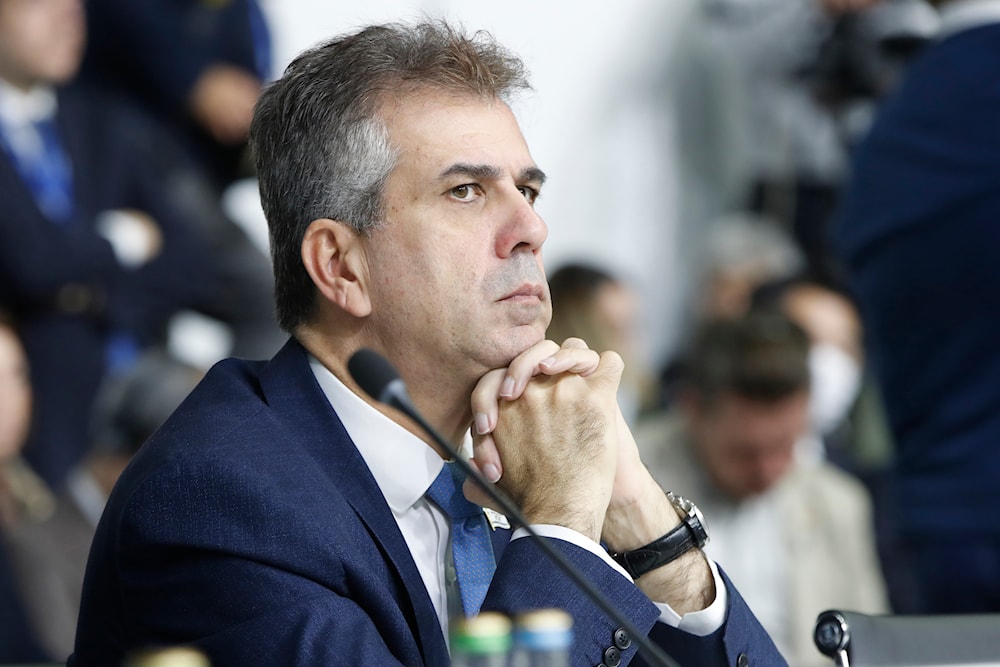Israeli energy minister says orders given to cut off Gaza electricity
The Minister's announcement follows the Israeli step of cutting off all humanitarian aid from Gaza and closing all border crossings to the Strip, as the second-phase negotiations reach an impasse.
-

Then-Israeli Foreign Minister Eli Cohen attends the plenary session of the OSCE, in Skopje, North Macedonia, Thursday, Nov. 30, 2023 (AP)
The Israeli Energy Minister announced that he has given orders to cut the electricity supply to Gaza on Sunday, a week after the occupation blocked all humanitarian aid from the Strip.
"I have just signed the order to stop supplying electricity immediately to the Gaza Strip," Eli Cohen announced in a video address, emphasizing that "Israel" will "use all the tools at our disposal to bring back the hostages and ensure that Hamas is no longer in Gaza the day after [the war]."
This comes amid heightened tensions in Gaza, as "Israel" continues to violate the ceasefire agreement in the Strip and stall the second-phase negotiations while Hamas continues to call for holding talks to move on with the second phase of the ceasefire deal.
Hamas negotiates in Egypt
A Hamas delegation arrived in Cairo on March 7 to discuss the implementation of the ceasefire agreement in Gaza and to advance negotiations to the second phase, which is meant to lead toward a permanent cessation in fighting, according to an Egyptian State Information Service statement.
"Cairo is conducting intensive contacts with all parties to swiftly reach the second phase of the truce," the statement said, noting that Egypt's high-level meetings with Hamas leaders, alongside contacts with the US and Qatar, aim to finalize the ceasefire agreement.
The statement also noted that Egyptian-Qatari efforts remain focused on securing the necessary guarantees to move forward with the second phase of the ceasefire and prisoner exchange agreement in Gaza.
US envoy Adam Boehler, who engaged in direct talks with Hamas, described his meeting with the Palestinian Resistance faction as "very helpful", pointing out, "I think something could come together within weeks... I think there is a deal where they can get all of the prisoners out, not just the Americans."
"Israel" has been evading the launch of the second phase of the ceasefire agreement, instead opting for a United States proposal to extend the first phase of the ceasefire agreement until mid-April.
The Israeli government unilaterally endorsed the US proposal on March 2, extending the first phase through the holy month of Ramadan until April 19, during which half of the Israeli captives, living and dead, would be released on the first day of the ceasefire, while the remaining captives are released at the end of the period if a permanent ceasefire is reached.

 3 Min Read
3 Min Read








